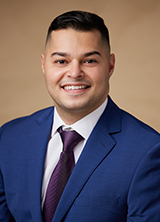Limitations on compensability for treating conditions impeding recovery in Washington
 Under the compensable consequences doctrine, the consequences for a compensable industrial injury are considered to be part and parcel of the injury itself. The Board has applied this principle in numerous cases. For example, In re George Gillilan involved a claimant who sustained a right inguinal hernia and a low back injury during the course of employment. The claimant died two months later as a result of a heart attack. The medical evidence showed the industrial injury resulted in a disability preventing the claimant from returning to work and caused him grief and anxiety to such an extent that his heart was thereby affected. Although the heart attack did not directly result from the industrial injury itself, the Board ruled that a heart attack caused by worry over the physical residuals of an industrial injury was compensable as part of the injury.
Under the compensable consequences doctrine, the consequences for a compensable industrial injury are considered to be part and parcel of the injury itself. The Board has applied this principle in numerous cases. For example, In re George Gillilan involved a claimant who sustained a right inguinal hernia and a low back injury during the course of employment. The claimant died two months later as a result of a heart attack. The medical evidence showed the industrial injury resulted in a disability preventing the claimant from returning to work and caused him grief and anxiety to such an extent that his heart was thereby affected. Although the heart attack did not directly result from the industrial injury itself, the Board ruled that a heart attack caused by worry over the physical residuals of an industrial injury was compensable as part of the injury.
In a similar case, In re Arvid Anderson, the claimant sustained a neck injury which required surgery. The medical evidence showed a causal link between the claimant’s cardiac arrythmia and the industrial injury since the condition arose as a result of the stress attendant to the claimant’s neck surgery which was related to the claim. The Board found that a cardiac arrhythmia caused by the stress of surgical treatment for the direct residuals of the industrial injury was attributable to the industrial injury even though the injury did not directly and immediately cause the condition itself.
The compensable consequences doctrine adds a layer of challenge for employers and third-party claims administrators trying to get a claimant to reach maximum medical improvement. Through no fault of any party, a claimant can sustain additional injuries as a result of the treatment process which can significantly delay processing a claim to closure. However, a new significant decision by the Board imposes some limitations on the compensable consequences doctrine. In re Janice M. Brinson-Wagner involves a claimant who injured her left leg and ankle at work. The Department allowed the claim and claimant had multiple surgeries to her left ankle thereafter. Claimant underwent physical therapy to recover from her surgery but the preexisting arthritis in claimant’s left knee was hindering her recovery from the industrial injury.
After the parties litigated this matter, the Board found the industrial injury did not proximately cause or aggravate the left knee condition but authorized left knee surgery solely as an aid to recovery of the ankle condition. Claimant underwent two knee surgeries in October 2018 and April 2019. Claimant then sought authorization for a third knee surgery to remove scar tissue resulting from the knee replacement surgery as well as time-loss compensation benefits. The Board held that because the third surgery was only required to treat a non-industrially related condition that previously impeded recovery of an industrial related condition, and because claimant’s industrially related condition was now fixed and stable, the employer does not have an ongoing responsibility to continue to treat all complications that arose from the condition.
This decision adds an important limitation to the compensable consequences doctrine. A claimant can only receive treatment for non-industrially related conditions to the extent they are impeding recovery for the related conditions. Once the claimant is medically fixed and stable, there is no ongoing responsibility for the employer to treat the unrelated conditions. I recommend first clarifying the conditions accepted as related to the claim. If a claimant has a non-industrially related condition impeding recovery, I further recommend working with claimant’s attending provider and other medical consultants to determine what treatment is necessary to improve the non-industrially related condition enough so that it is no longer impeding recovery for the accepted conditions; it is not necessary the non-industrially related condition reach maximum medical improvement.
If you have any questions or concerns about handling a claim involving a subsequent injury or a non-industrially related condition impeding recovery, please feel free to contact me at (503) 412-3105 or .
Posted by Omeed Ghaffari.

